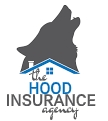
Understanding your auto insurance policy is crucial for ensuring you have the right coverage to protect yourself and your vehicle on the roads of Lynnwood, Washington. From deciphering the declaration page to comprehending policy terms and coverage levels, navigating your insurance policy can seem daunting. However, with the right knowledge and guidance, you can make informed decisions that provide you with peace of mind behind the wheel. In this comprehensive guide, we’ll delve into the intricacies of auto insurance policies specific to residents in Washington state, providing you with the information you need to navigate your policy effectively.
How To Navigate Your Auto Insurance Policy
Understanding the Declaration
The declaration page is a crucial part of your insurance policy that provides essential information about your coverage, costs, and deductions. This page, usually found at the beginning of your policy, contains details such as your personal information, names of drivers on the policy, insured vehicles, coverage schedule, policy period, discounts, and surcharges. Reviewing this page thoroughly ensures you have a clear understanding of your policy’s specifics.
Have You Made Any Changes to Your Insurance?
It’s essential to review your insurance policy after making any changes, such as adding a new driver or adjusting coverage levels. After making a change, you should receive a notification from your insurance carrier confirming the changes. If you haven’t received a notification within a week, it’s advisable to contact your insurer to ensure the changes have been accurately processed. Requesting a new declarations page can help you verify the latest information and confirm that your requested changes have been implemented.
Various Levels of Coverage
Understanding the different coverage levels is crucial when considering adjustments to your policy. Liability coverage, required in most states, helps cover costs related to medical bills, vehicle repairs, and legal settlements. It is divided into three subcategories, each offering different levels of coverage for bodily injury and property damage.
- Bodily injury liability covers medical expenses and lost wages for the other party if you’re at fault in an accident. It also covers legal fees if you’re sued. Property damage liability covers repairs to the other party’s vehicle or property if you’re at fault in an accident.
- Collision insurance covers damage to your car resulting from a collision with another vehicle, regardless of fault. This coverage is essential, especially in densely populated areas like Lynnwood, where accidents can happen frequently.
- Comprehensive insurance provides protection against theft, vandalism, and certain natural disasters, going beyond basic coverage levels. Personal Injury Protection (PIP) covers medical treatment costs for the insured driver and passengers, regardless of fault, and uninsured/underinsured motorist coverage pays for damages if you’re hit by a driver with insufficient insurance.
Reviewing Policy Terms
When reviewing your policy, pay attention to policy terms highlighted in bold. Familiarize yourself with terms such as “family member,” “the insured,” “covered autos,” “actual cash value,” and “aftermarket parts” to understand who and what is covered under your policy. Additionally, pay close attention to words like “all,” “except,” and “however,” as they define what your carrier will or will not cover.
Understanding Exclusions
Explore any items listed as “exclusions” in your policy, which refer to things not covered by your insurance. Exclusions typically define behaviors or circumstances beyond the scope of your coverage, such as deliberate damage to a vehicle or using the vehicle for business purposes. Understanding these exclusions is essential to avoid any surprises during a claim.
How to File a Claim
Understanding how to file a claim is crucial in the event of an accident or damage to your vehicle. Most insurance companies offer multiple channels for filing a claim, including phone, online portal, or mobile app. Be sure to have all relevant information handy, such as the date and location of the incident, contact information for all parties involved, and any relevant documentation, such as police reports or medical records.
Once you’ve filed a claim, your insurance company will assign an adjuster to assess the damage and determine coverage. Be cooperative and provide any requested information promptly to expedite the claims process. Keep track of all communication and documentation related to your claim for your records.
Review Your Coverage Regularly
Your auto insurance needs may change over time due to factors such as changes in your driving habits, vehicle upgrades, or life events such as marriage or the addition of a teenage driver to your policy. It’s essential to review your coverage regularly to ensure it still meets your needs and provides adequate protection. Consider consulting with your insurance agent annually to assess your coverage and explore any available discounts or savings opportunities.
Contact Hood Insurance Agency Today For Auto Insurance Services In Washington State
Navigating your auto insurance policy can be complex, but you don’t have to do it alone. Contact Hood Insurance Agency today for expert guidance and tailored auto insurance solutions in Lynnwood, Washington, and throughout the state. Our experienced team is here to help you understand your policy, explore coverage options, and provide the support you need to protect yourself on the road.
Don’t wait until it’s too late – ensure you have the right coverage in place to safeguard yourself and your vehicle. Let Hood Insurance Agency be your trusted partner in navigating the intricacies of auto insurance in Washington state.
